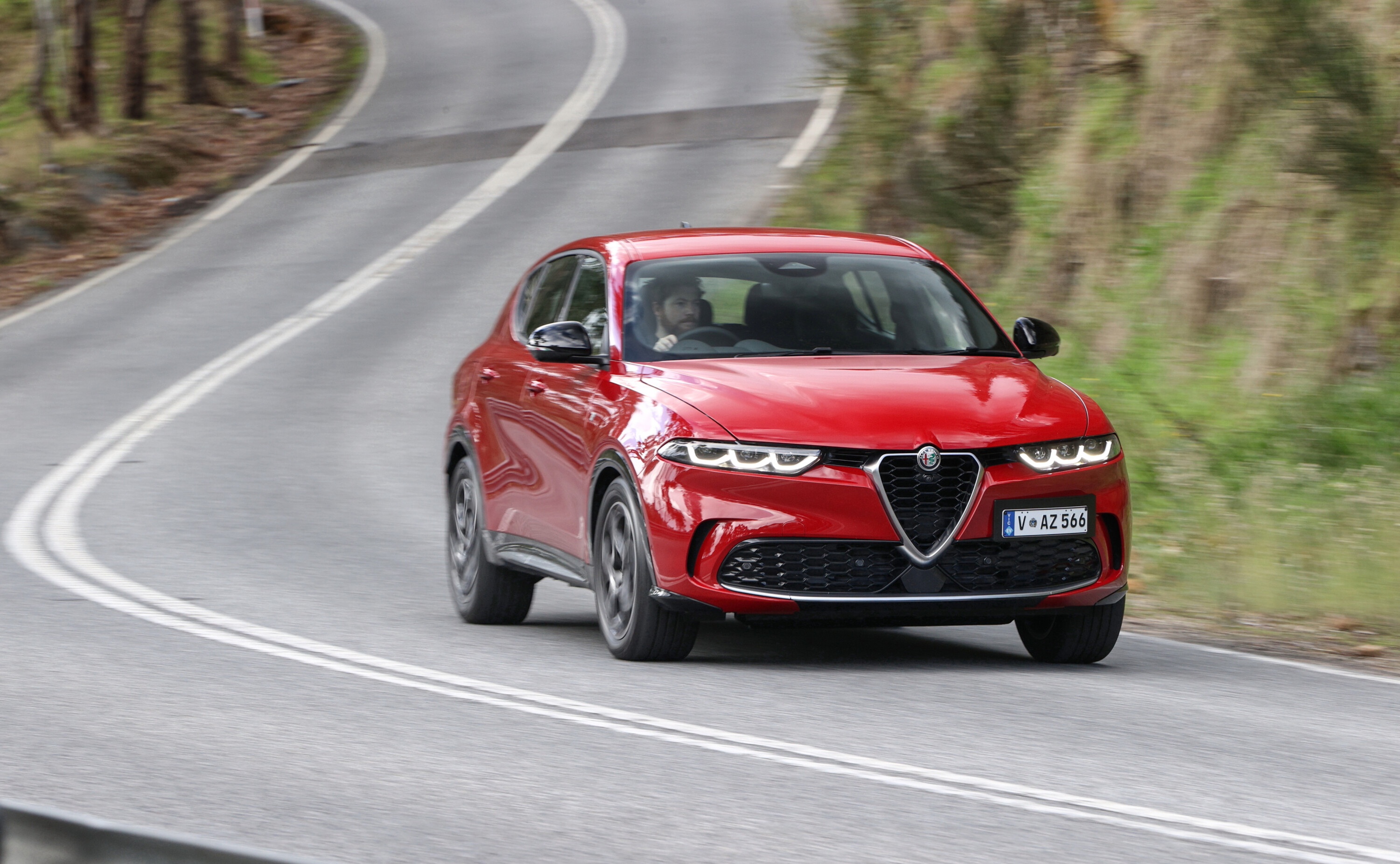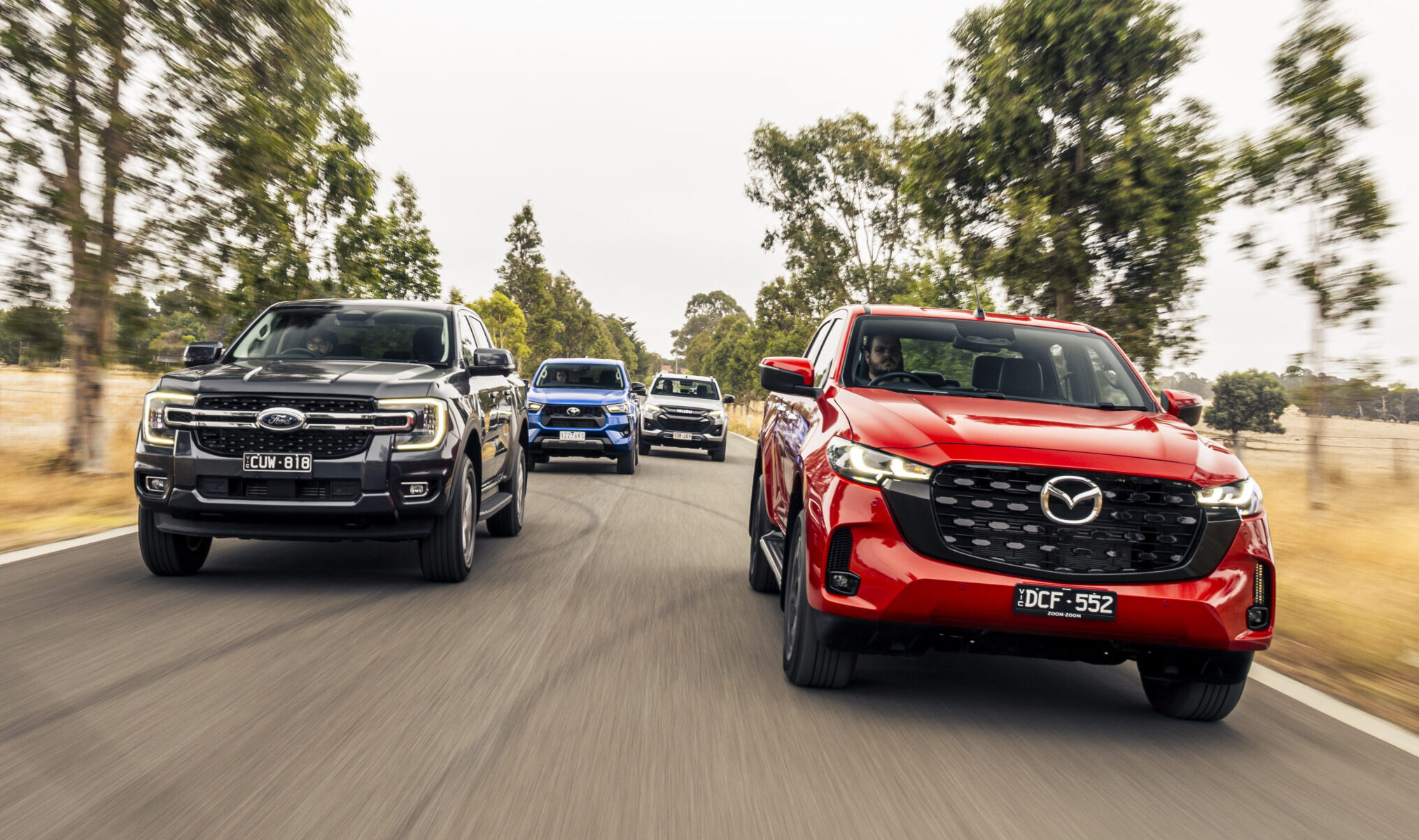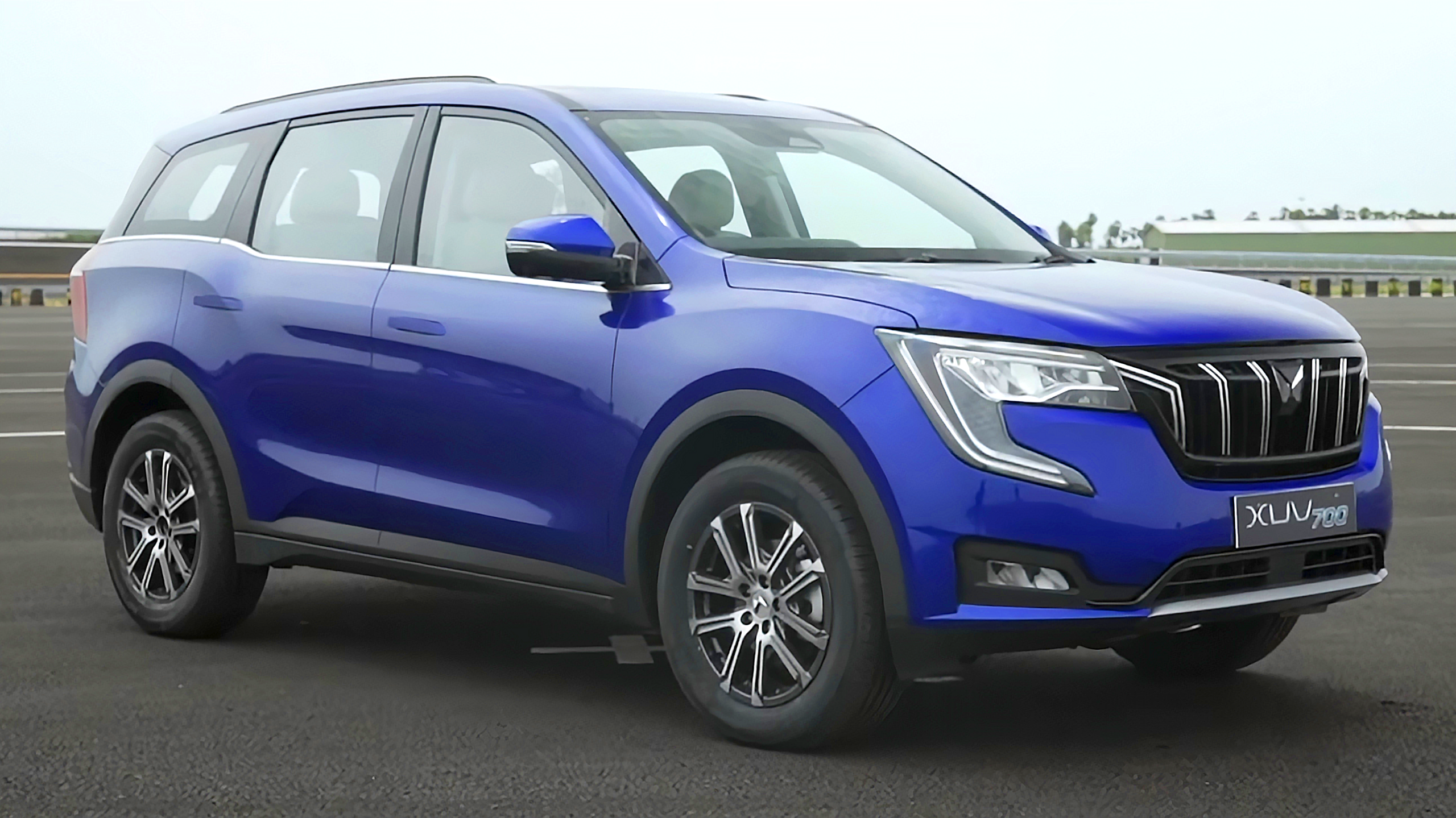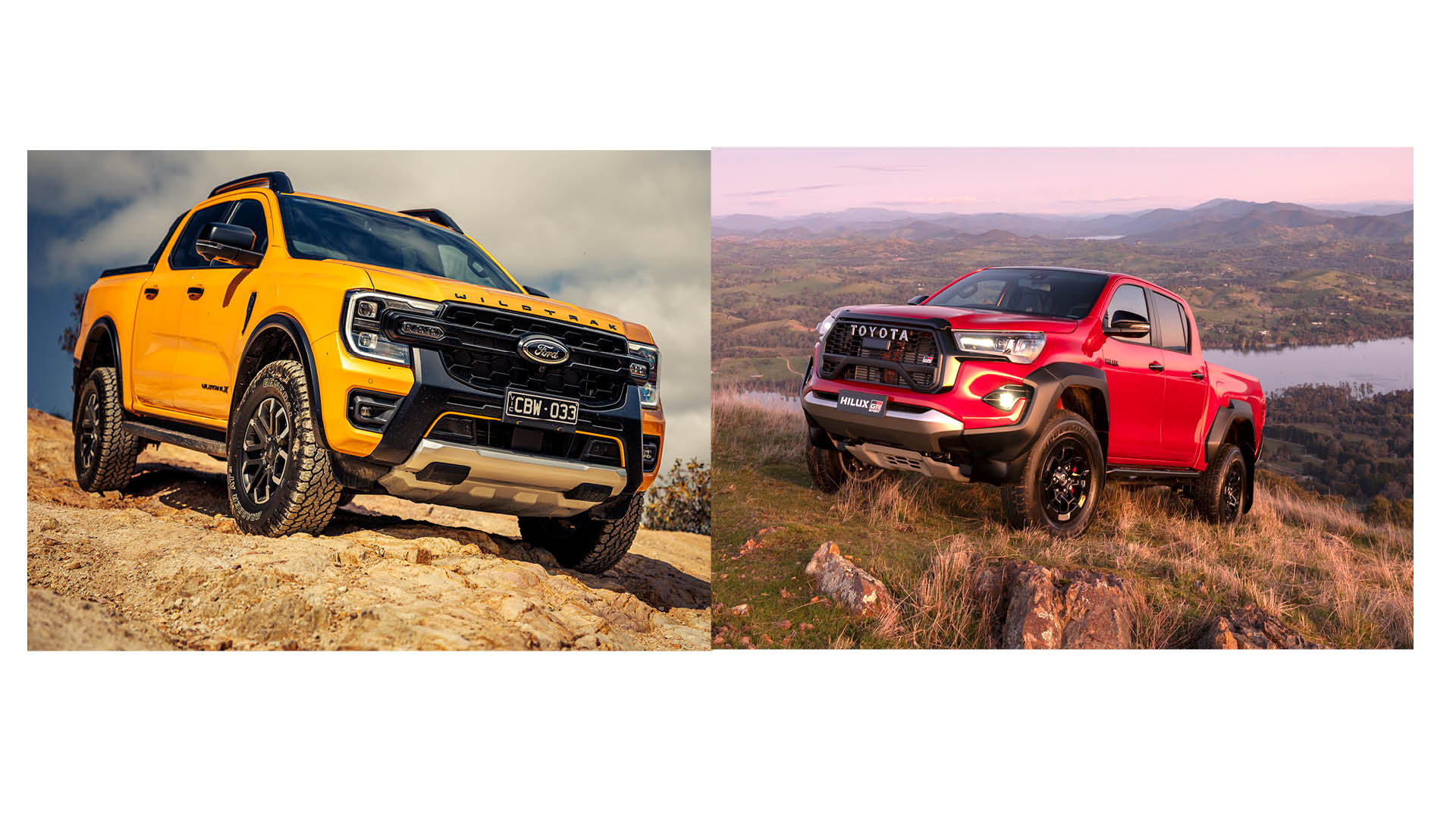Score breakdown
Things we like
- Distinctive detail design
- Keen, well-balanced handling
- Generous cabin space
- Impressive technology
Not so much
- Driveability flaws
- Engine neither feels nor sounds like an Alfa should
- Below-par cabin plastics
- Full safety suite optional on base Ti
After several attempts at reviving Alfa Romeo’s global sales in recent years – namely via the new-generation Giulia sedan (2016) and the brand’s first SUV, the Stelvio (2017) – that monumental task has now been handed to Alfa’s new premium small SUV, the Tonale.
Intended to compete with the Audi Q3, BMW X1/X2, Mercedes-Benz GLA and Volvo XC40, the Tonale debuts in Australia with a single mild-hybrid turbo-petrol drivetrain in two front-wheel-drive variants – the Tonale Ti ($49,900 before on-road costs) and Tonale Veloce ($56,400 before on-road costs). Later in 2023, these will be joined by an all-wheel drive plug-in hybrid version.
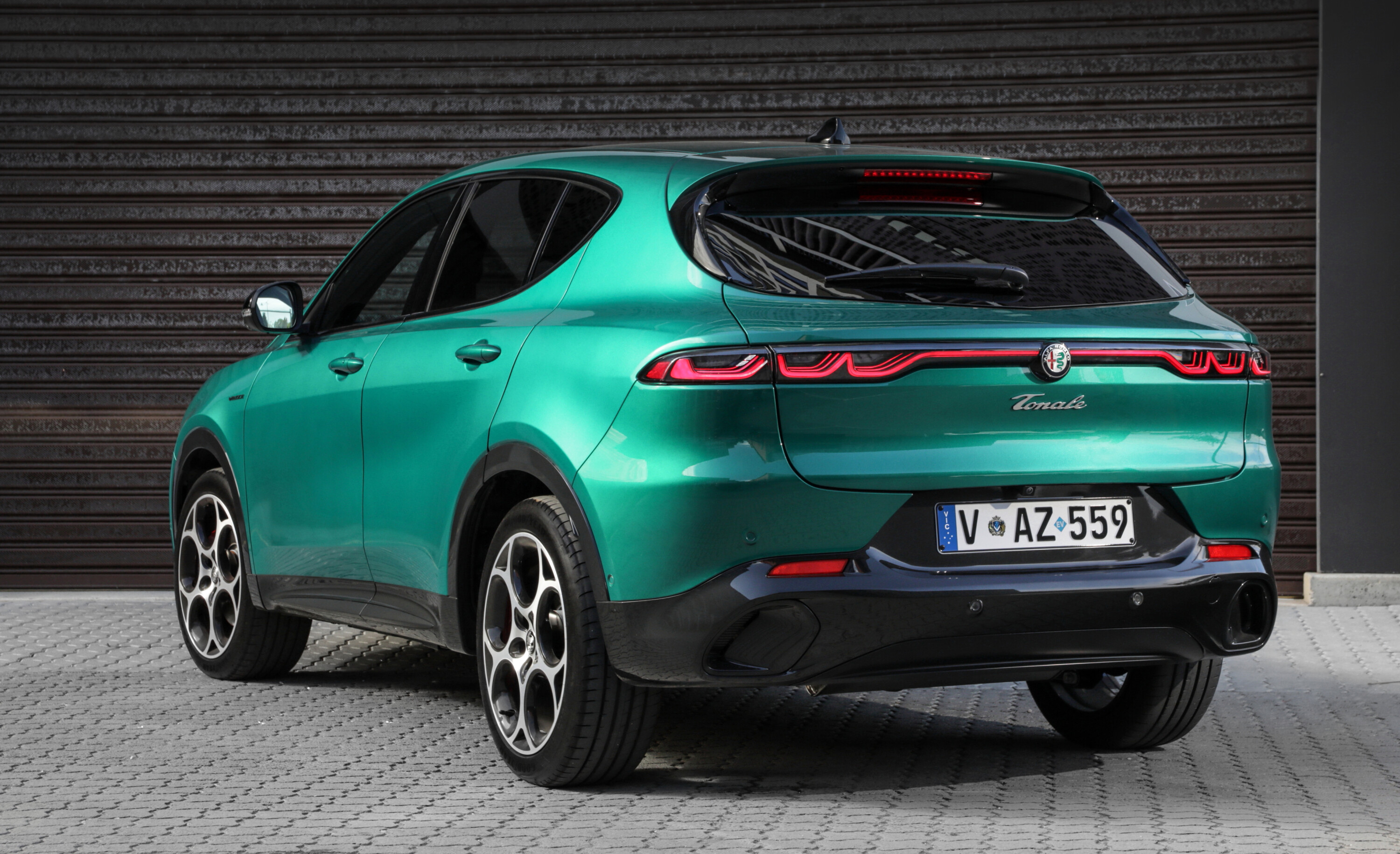
Alfa Romeo is hoping that the Tonale Hybrid will be the panacea for its dismal Australian sales in recent years and is relying heavily on its ‘hybrid’ efficiency and detail design to attract the image-conscious buyers that populate the premium small SUV segment.
But does it also have enough brio to fulfil the expectations of the Alfa Romeo faithful, as well as anyone who might consider an Alfa Romeo product?
JUMP AHEAD
- How much is it, and what do you get?
- Interior comfort, space and storage
- What is it like to drive?
- VERDICT
How much is it, and what do you get?
As revealed last October, two Tonale variants will be available from launch – the $49,900 Tonale Ti and $56,400 Tonale Veloce, each with a mild-hybrid turbo-petrol drivetrain, seven-speed dual-clutch transmission and front-wheel drive.
Notable equipment highlights include adaptive matrix LED headlights with sequential indicators, full-width LED tail-lights, ‘telephone-dial’ alloy wheels (18s on Ti, 19s on Veloce), a 10.25-inch infotainment screen with navigation, wireless Apple CarPlay/Android Auto, wireless phone charging, a 12.3-inch configurable TFT instrument cluster and ‘Alfa Connect’ services with Amazon Alexa compatibility.
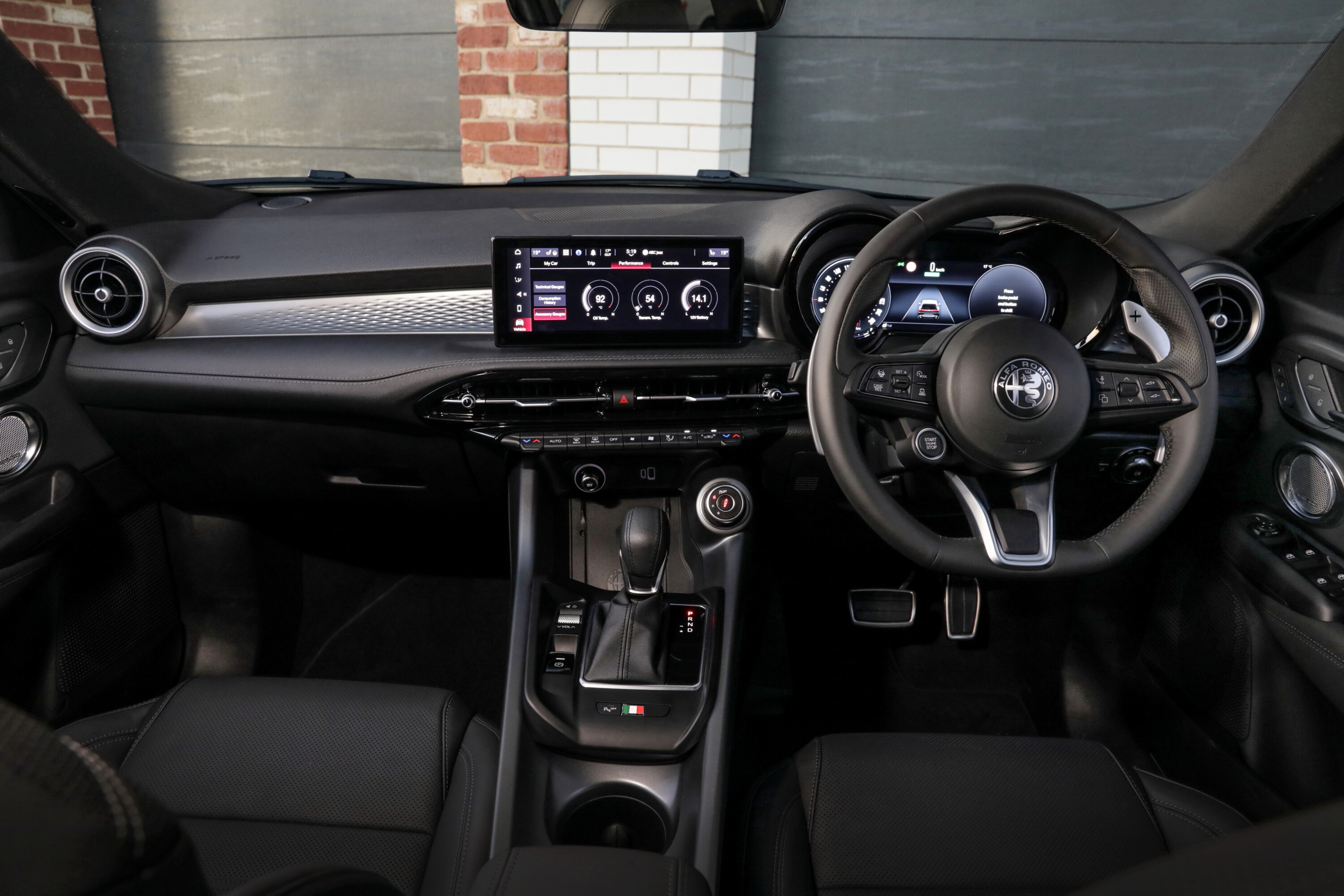
To gain the full safety equipment suite, the Tonale Ti requires an optional $2500 Technology Pack…
The up-spec Veloce gains adaptive damping, red four-piston Brembo front brake calipers, rear privacy glass, perforated Alcantara/leatherette seating (instead of cloth/leatherette) with red stitching, aluminium shift paddles and sill plates, adaptive cruise control with traffic jam assist, lane-keep assist, blind-spot monitoring, rear cross-traffic alert, side parking sensors and a 360-degree camera with dynamic lines.
In order to gain the latter safety equipment, the Tonale Ti requires an optional $2500 Technology Pack, while both Tonale variants can be optioned with a $4500 Lusso pack that includes heated/ventilated front seats with eight-way electric adjustment and driver’s side position memory, heated steering wheel, heated windscreen washers, perforated leather upholstery with grey double stitching, and a 14-speaker Harman Kardon stereo (replacing the stock six-speaker set-up).
Other options include metallic paint ($1600), sunroof ($2500) and, exclusively on the Veloce, tri-coat paint ($2500) and 20-inch alloys ($1500).
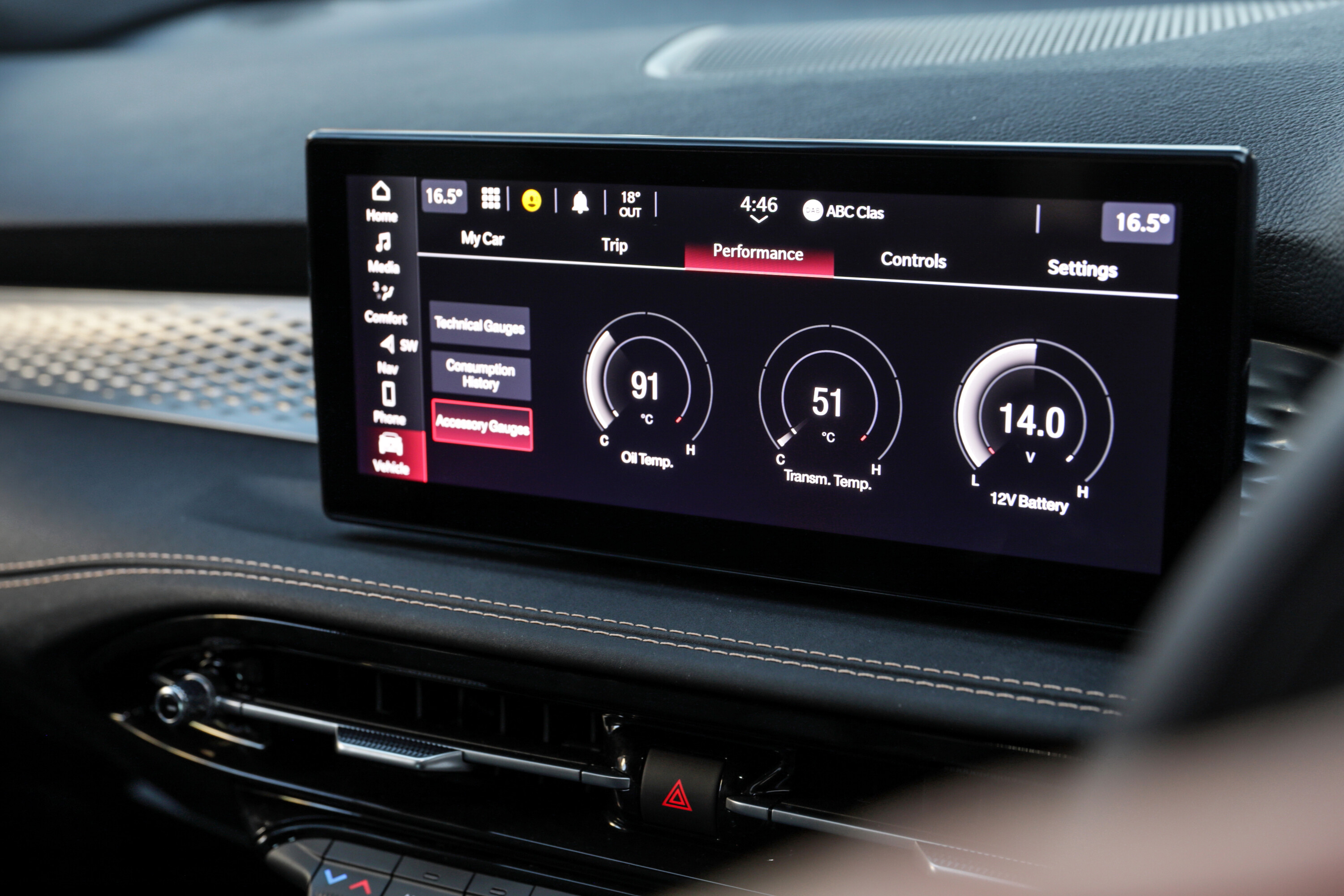
Interior comfort, space and storage
Sharing its ‘Small Wide’ platform and 2636mm wheelbase with the current Jeep Compass, the Tonale neatly straddles the global small and medium SUV categories, to the benefit of passenger space.
And while some premium small rivals out-measure the Tonale from axle to axle – namely the Audi Q3 (2680mm), BMW X1 (2692mm), Volvo XC40 (2702mm) and Mercedes GLA (2729mm) – no rival can match the Tonale for overall length. At 4528mm long, it’s easily the biggest SUV in its class, and even manages to out-stretch the Volkswagen Tiguan!
Inside, that results in generous overall space with decent rear legroom, toe space and headroom, backed by a supportive – if fairly upright and non-adjustable – rear bench that provides good under-thigh support in the outer two positions, combined with rear air vents and USB outlets (of both A and C varieties).
On the downside, there are no grab handles in the back and occupants must make do with lower-grade plastics than are found up front.
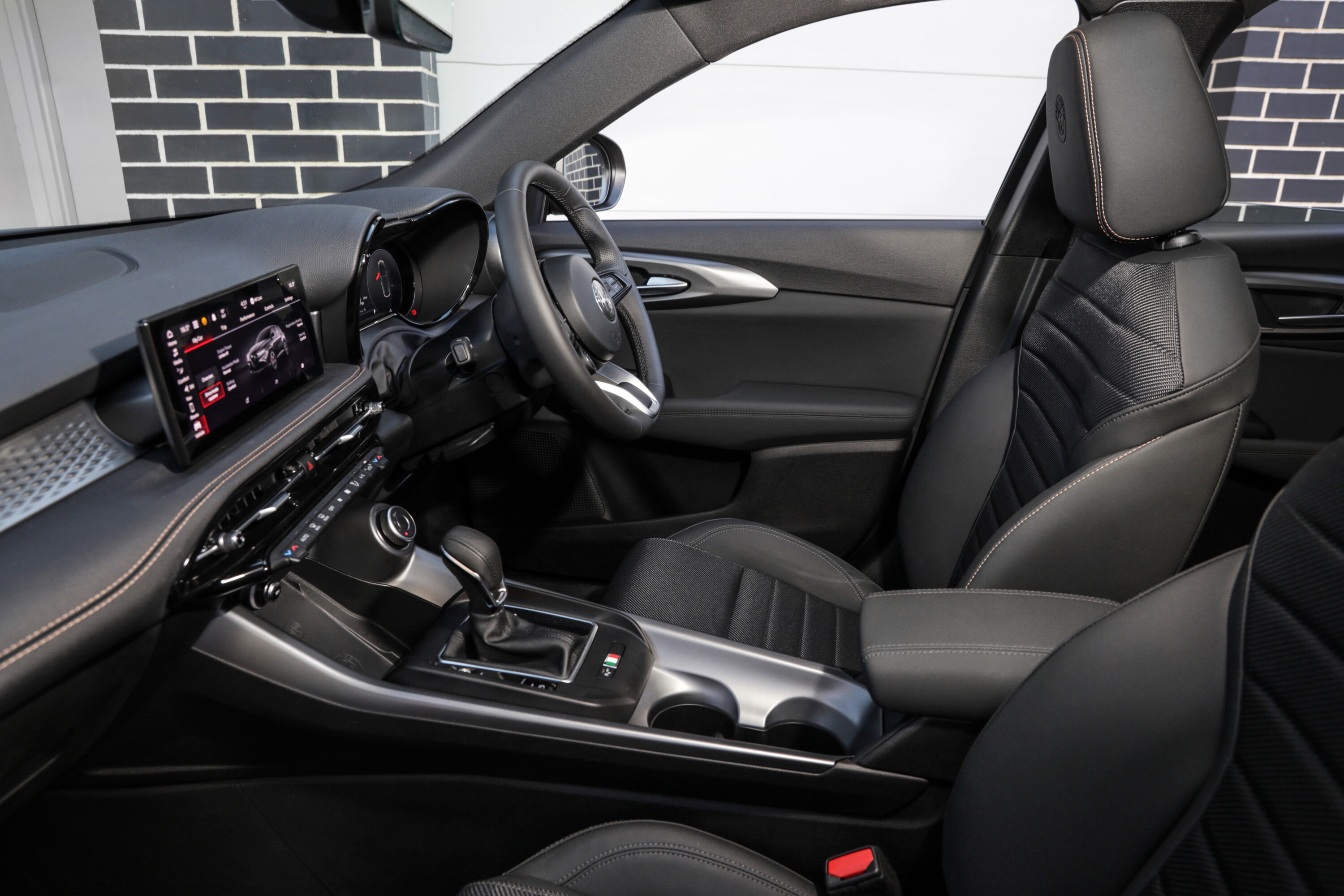
As standard, the Tonale’s front buckets offer crank-handle height adjustment and lever backrest adjustment, plus cloth (Ti) or Alcantara (Veloce) trim centres with leatherette bolsters.
Comfort is impressive and the driving position is suitably ergonomic, with Alfa’s brilliant three-spoke steering wheel and switchgear that’s easy to navigate.
Pity the lower plastics are all hard to touch and appear inexpensive – especially the centre-console edges that press into the driver’s shins.
As for the in-cabin tech that Alfa Romeo is so proud of, it’s all up to par. The 10.25-inch central infotainment touchscreen combines with wireless Apple CarPlay/Android Auto for seamless operation, and the 12.3-inch TFT instrument screen offers several classy view options – especially the ‘heritage’ setting with flat-faced digital dials that beautifully mimic the huge analogue gauges of Alfa’s late-’60s heyday.
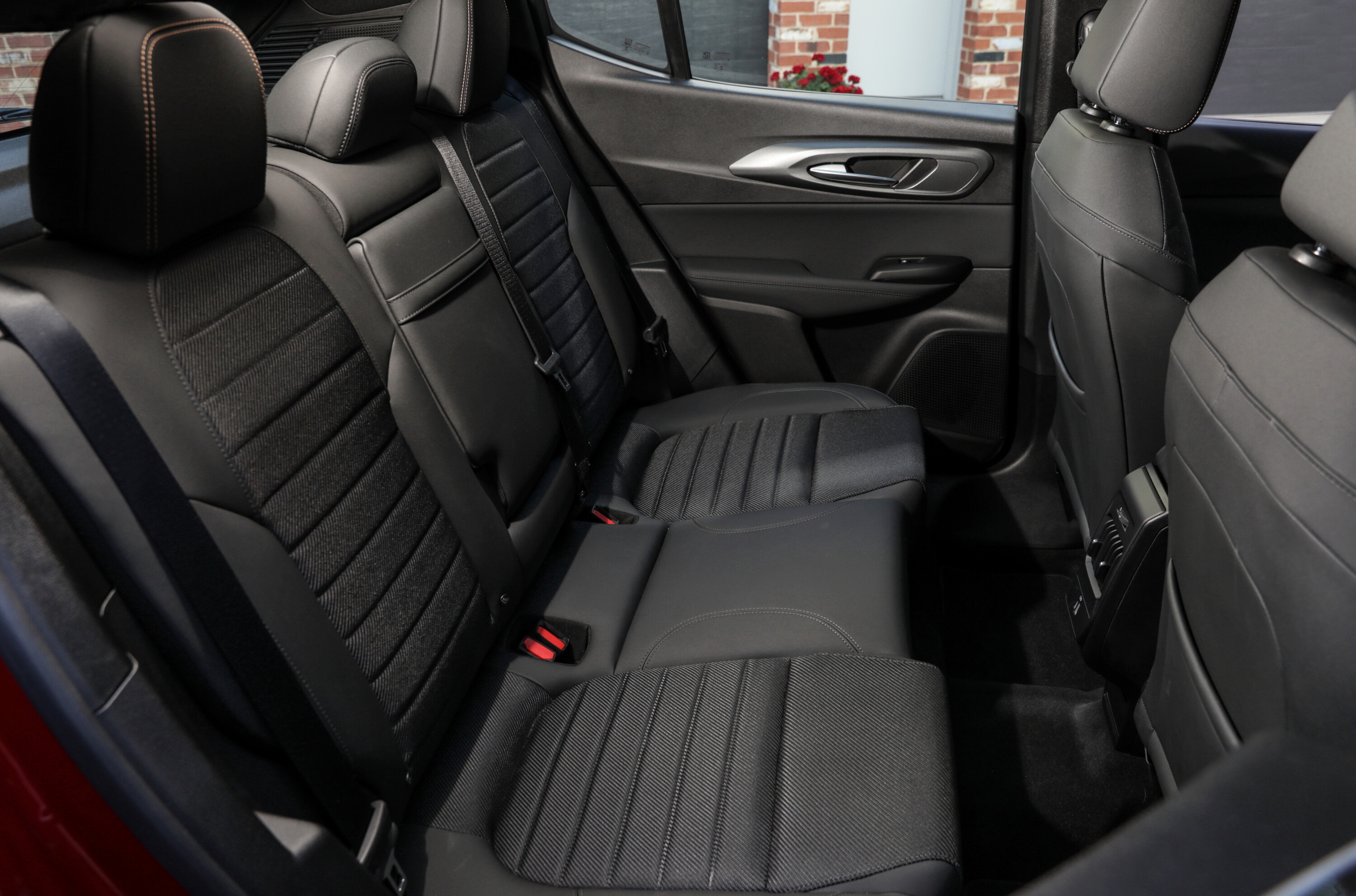
The top-spec stereo – a crisp 14-speaker Harman Kardon set-up – is part of an optional Lusso pack that also brings charcoal perforated leather and eight-way electric adjustment for both front seats, which improves overall comfort though does make the interior look very dark.
As for boot space, Alfa quotes 500 litres with the 60:40 rear backrest erect, though that doesn’t account for the 17-inch space-saver spare housed beneath the floor in Australian-spec Tonales. Either way, the boot is nicely trimmed and is accessed via a standard electric tailgate on both variants.
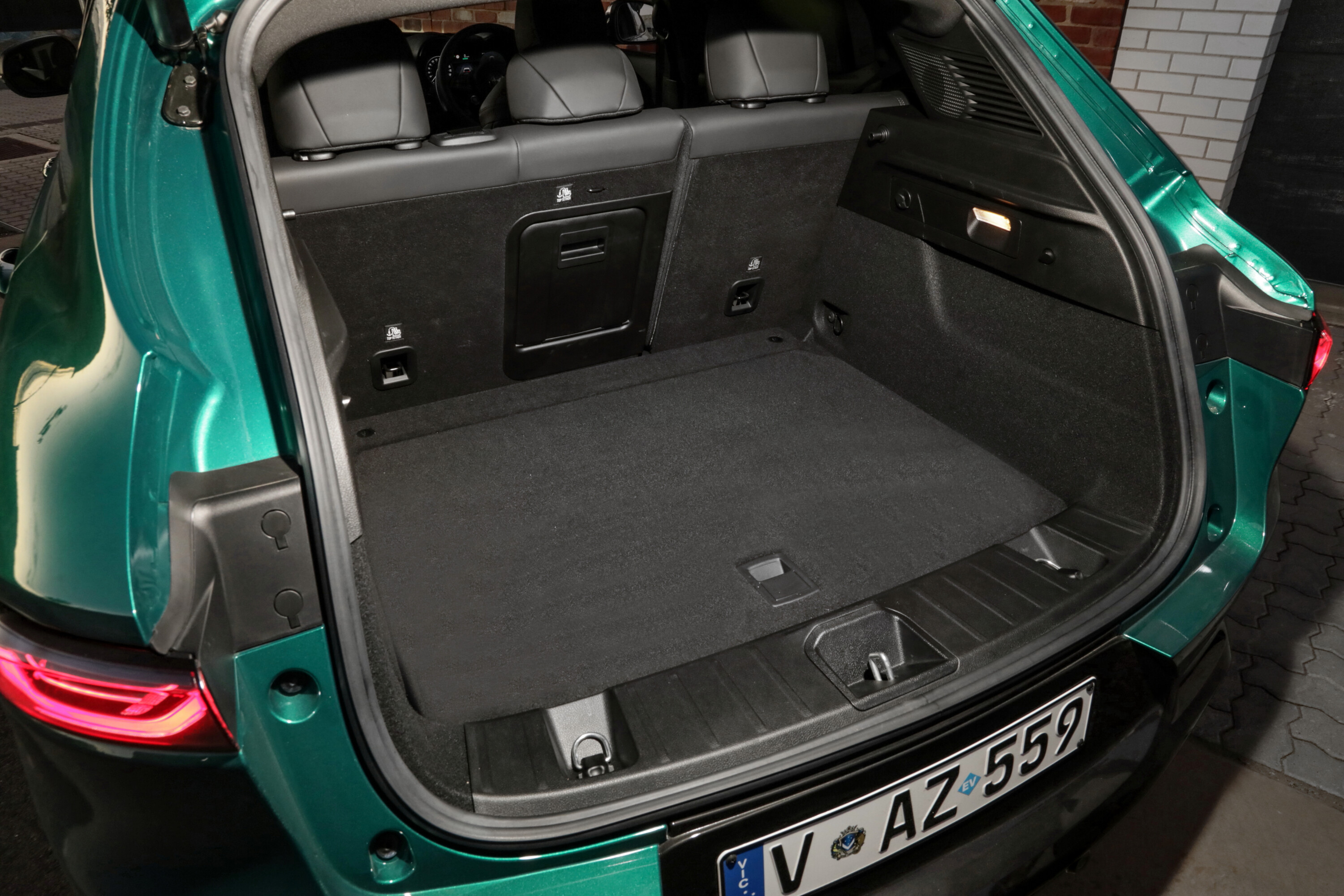
What is it like to drive?
Even though the Tonale shares its core platform architecture with the Jeep Compass, Alfa claims its suspension and overall set-up is unique, meaning a strut front end, an independent strut rear end with three links per side, dynamic torque vectoring and two damping types – Koni frequency-selective dampers in the Ti and adaptive units in the Veloce.
Both set-ups work well, with the Tonale Ti on 235/50R18 Continental tyres offering a firm but well-damped ride, sound body control and an easygoing gait, though a fair amount of tyre rumble on coarse surfaces.
The 235/45R19 Goodyear-tyred Veloce adds a degree of sophistication to the above and can even be driven in Dynamic mode on Australian country roads without any impact on harshness.
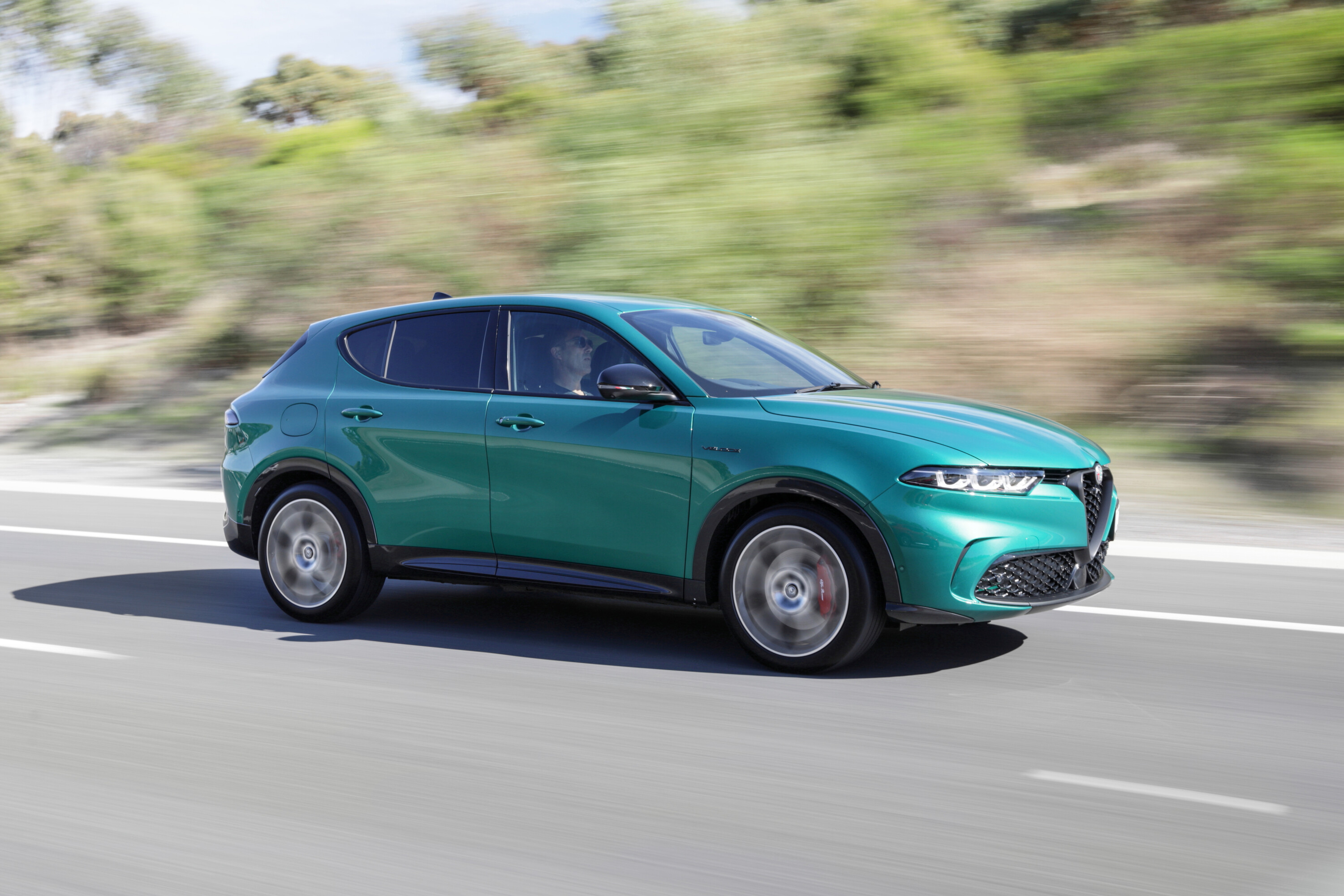
Alfa claims the Tonale’s drivetrain operates much like a series-parallel hybrid
Uniquely, Veloce’s ‘DNA’ drive mode set-up also offers a Ferrari-style softer damper setting when in Dynamic – meaning you can enjoy the benefits of much-improved steering weighting and a more responsive drivetrain combined with the ‘Natural’ suspension tune – though even firmer weighting doesn’t imbue the steering with genuine feel. It turns in keenly, with 2.3 turns lock to lock, but always reminds you that it’s electric.
Speaking of which, the Tonale is the first Alfa Romeo to offer any kind of electrification, though calling it a ‘hybrid’ is perhaps stretching things a touch far. It’s essentially a 48-volt mild-hybrid system with a gear-driven 15kW/55Nm e-motor linked directly to the seven-speed dual-clutch transmission and a lithium-ion battery mounted in the centre of the car that can store 0.8kWh and deliver a peak output of 20kW.
Because of the e-motor’s direct connection, Alfa claims the Tonale’s drivetrain operates much like a series-parallel hybrid – providing silent start-up and take-off, and electric motoring at speeds up to 15km/h.
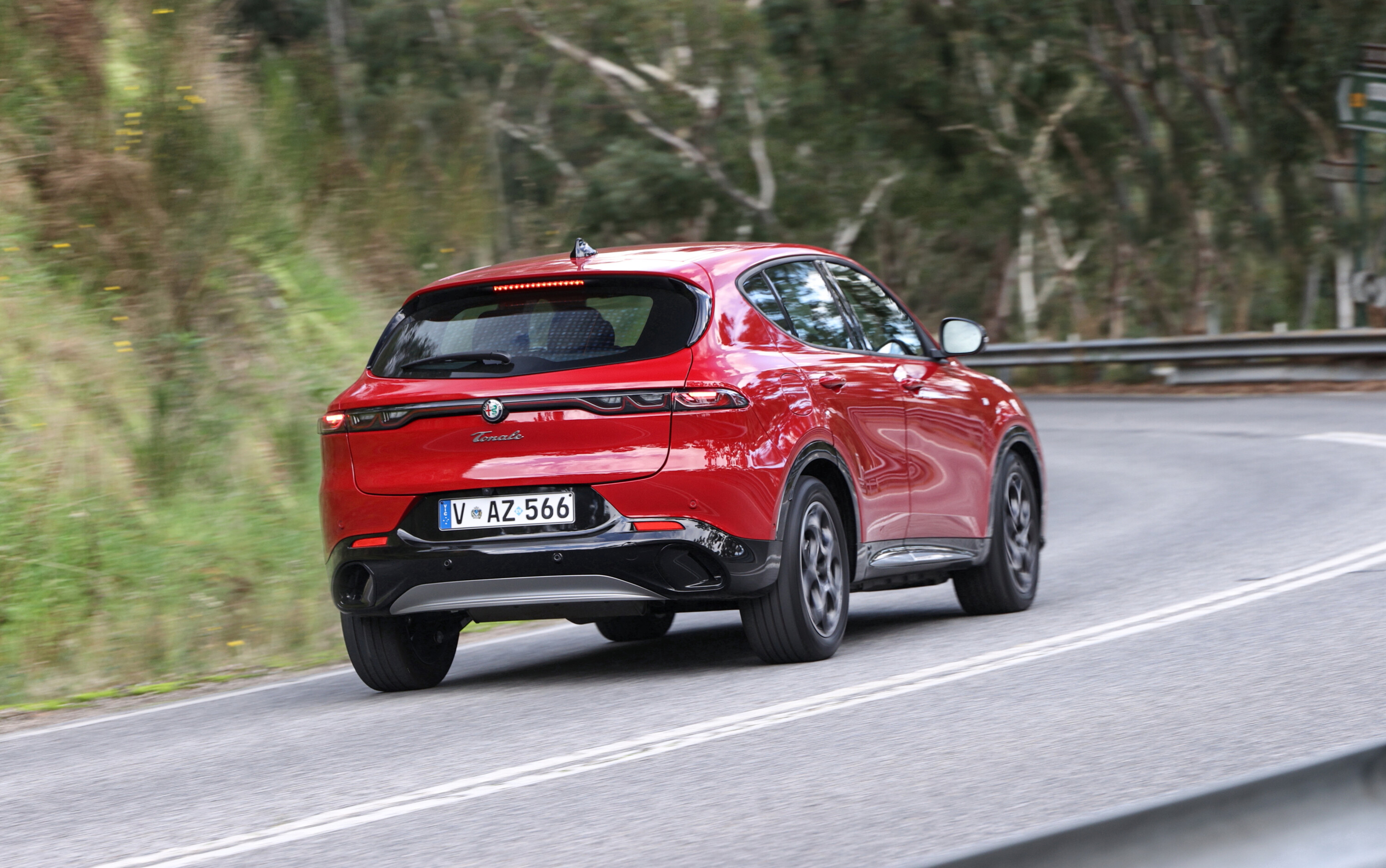
Beyond that, a new 1469cc turbo-petrol four-cylinder takes over, offering 118kW at 5750rpm and 240Nm from an impressively low 1500rpm, with an intriguing overlay of turbo whistle around 2000rpm from the variable-geometry turbocharger, though little else in the way of character.
It pulls strongly, performs briskly – Alfa claims 0-100km/h in 8.8 seconds on the way to a top speed of 212km/h – and effortlessly extends to around 6000rpm before upshifting. But it lacks any kind of induction fizz or flavour associated with Alfa petrol engines and feels like it would be better suited to another car.
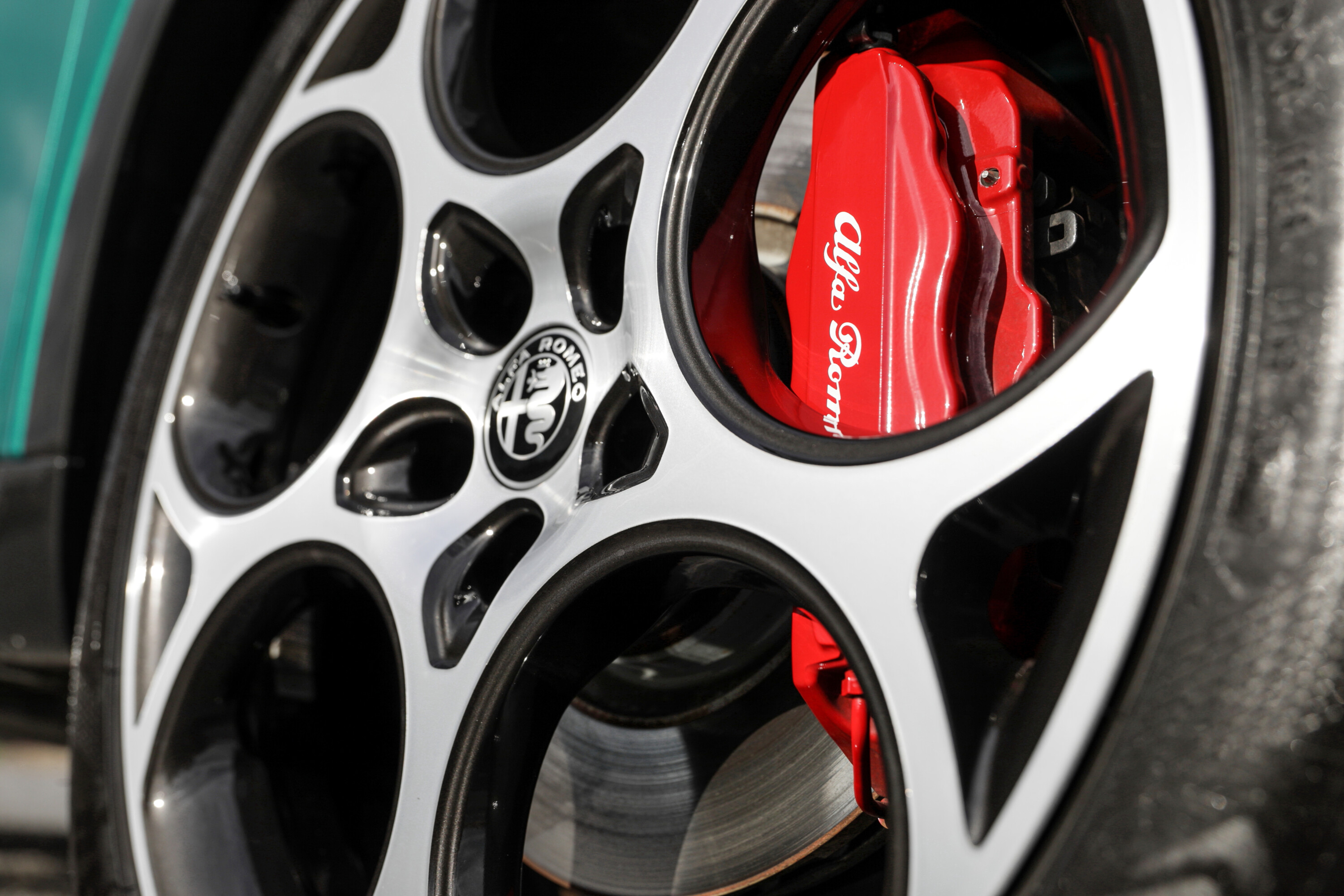
It also can be frustratingly laggy when asked for everything in Natural drive mode – particularly when the throttle is stomped during rolling acceleration – and the combination of the Tonale’s idle-stop system with its dual-clutch transmission is nowhere near as slick and crisp as it should be after Alfa Romeo’s decade of experience with this kind of set-up.
Fuel consumption wise, the Tonale Hybrid’s official combined figure is 5.6L/100km, though we averaged 7.0L/100km driving a Ti briskly on flowing country roads, and 11.2L/100km in a Veloce asked for everything it had to offer when snaking through the Adelaide Hills.
If any of the terms in this section have left you scratching your head, these articles will help bring you up to speed!
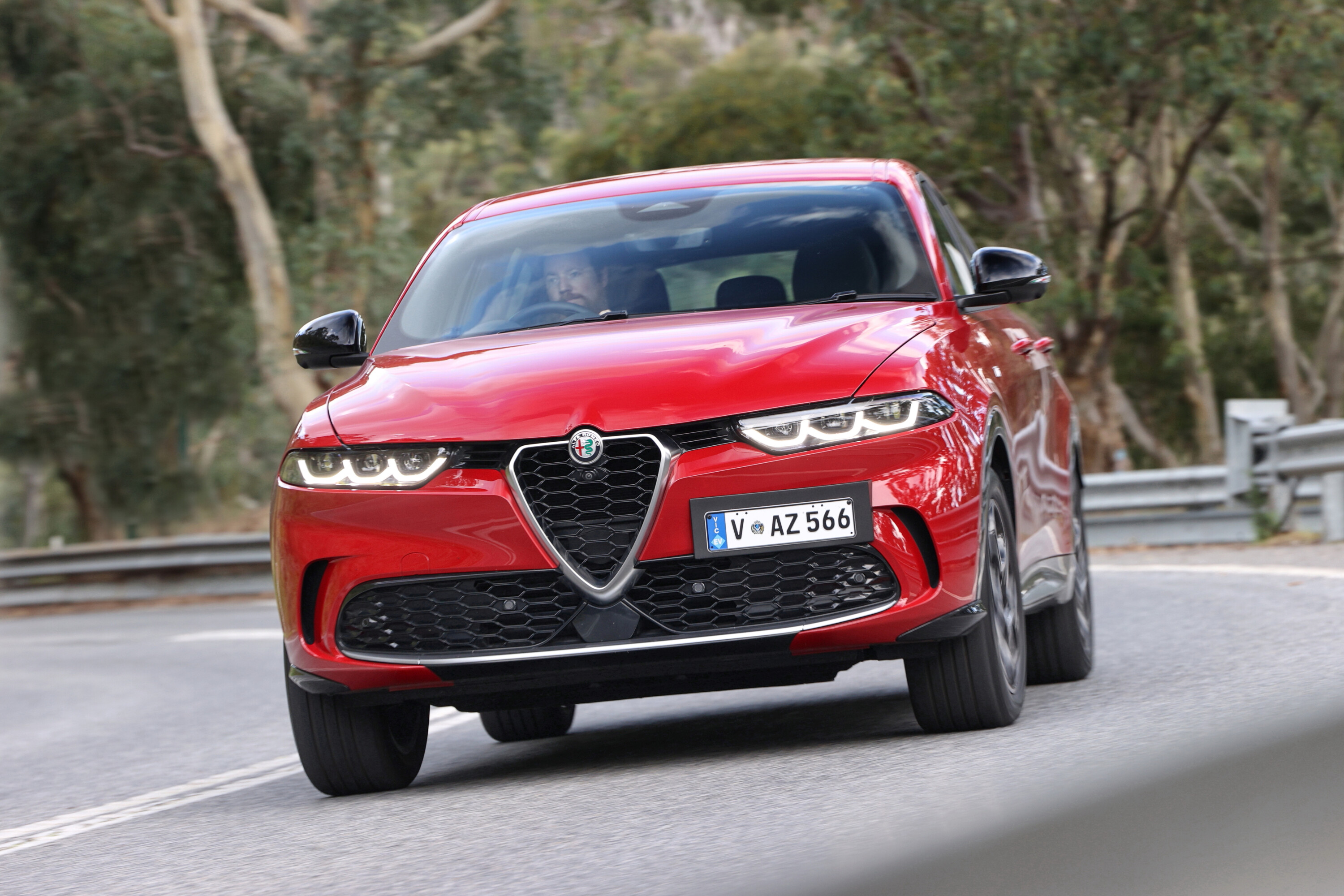
- What is a Powertrain or Drivetrain?
- Power vs torque
- Car suspension explained
- Automatic transmissions (‘gearboxes’) explained
- Chassis control systems explained
- Car vs Ute vs SUV: How the vehicle you buy should guide the way you drive
So does the nicely detailed Tonale deliver on the sporting promise of its individual design cues and Alfa Romeo heritage? Not quite.
From a driver’s perspective, its capable chassis, quick steering, well-resolved ride and strong brakes mostly fulfil the brief – aside from a lack of true steering feel. And from a packaging perspective, its generous space, comfortable seating and impressive in-cabin tech make it a solid option for anyone considering a Tonale as a general-duties premium small SUV.
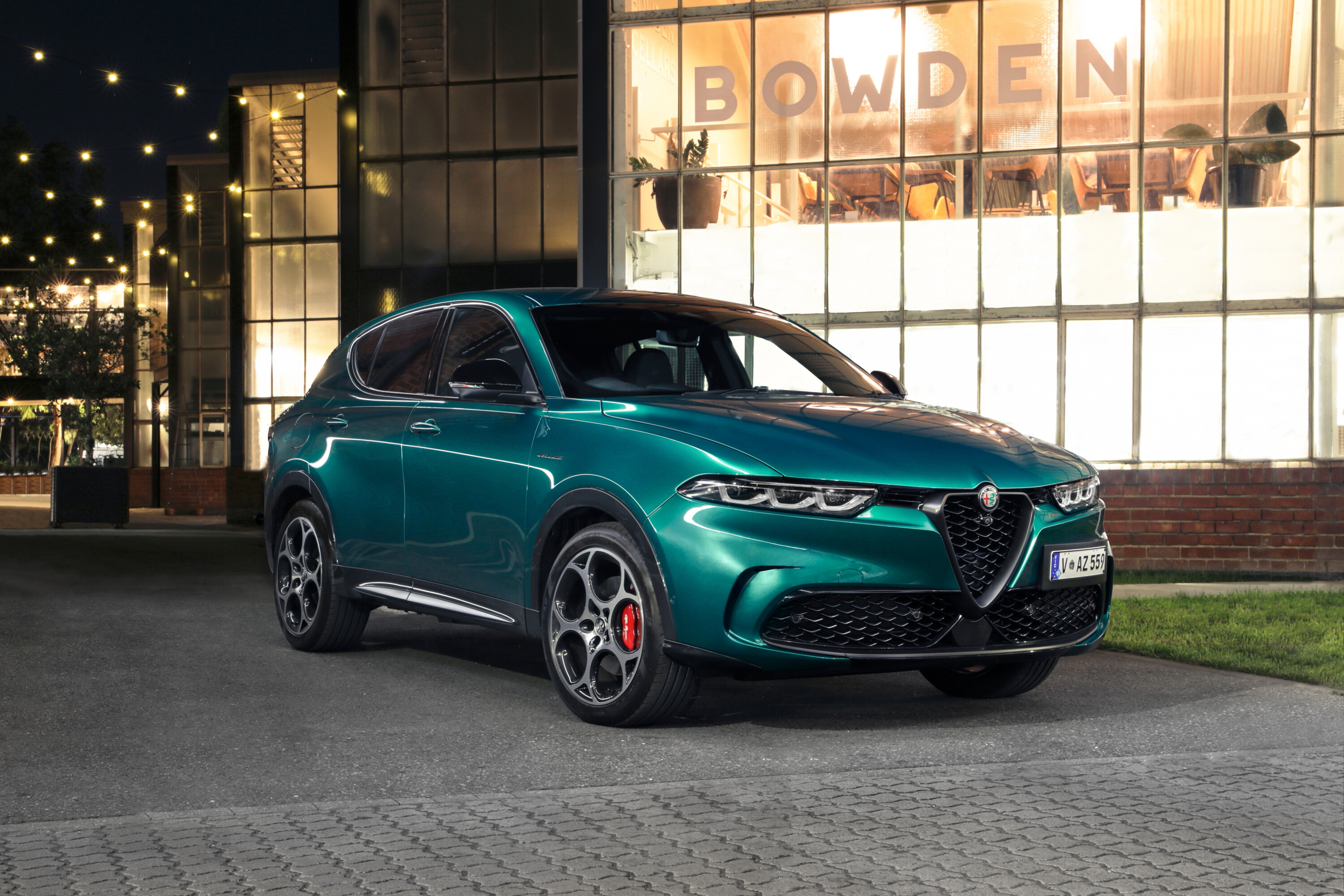
But its drivetrain seems at odds with the Italian passion it’s trying so hard to evoke.
And even with additional calibration to eradicate its handful of driveability flaws, you’re still left with a competent, efficient engine that might serve a Jeep Compass well, but seems rather uninspiring in the otherwise promising Tonale.
It’s nothing a 2.0-litre turbo-petrol couldn’t fix … but then the Tonale Hybrid wouldn’t be able to hang its hat on being the only hybrid-esque premium small SUV on the market. And therein lies the conundrum.
Score breakdown
Things we like
- Distinctive detail design
- Keen, well-balanced handling
- Generous cabin space
- Impressive technology
Not so much
- Driveability flaws
- Engine neither feels nor sounds like an Alfa should
- Below-par cabin plastics
- Full safety suite optional on base Ti
We recommend
-
News
2023 Alfa Romeo Tonale pricing and features: Petrol, PHEV
Alfa Romeo's new Tonale small SUV has arrived in Australia from $49,900 in mild-hybrid guise, with the plug-in hybrid due by Christmas
-
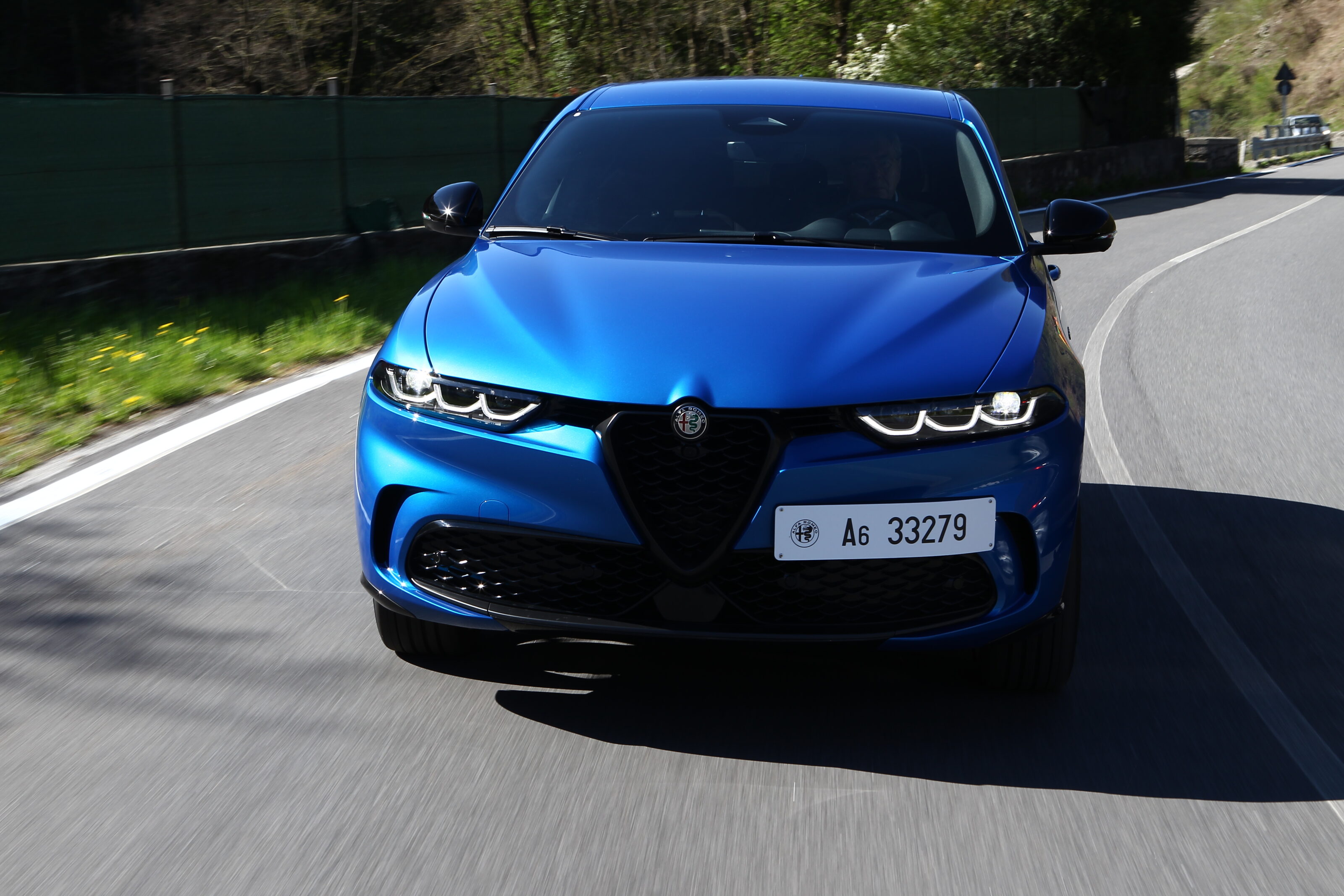 Reviews
Reviews2022 Alfa Romeo Tonale review: First drive
A proper Alfa? Almost...
-
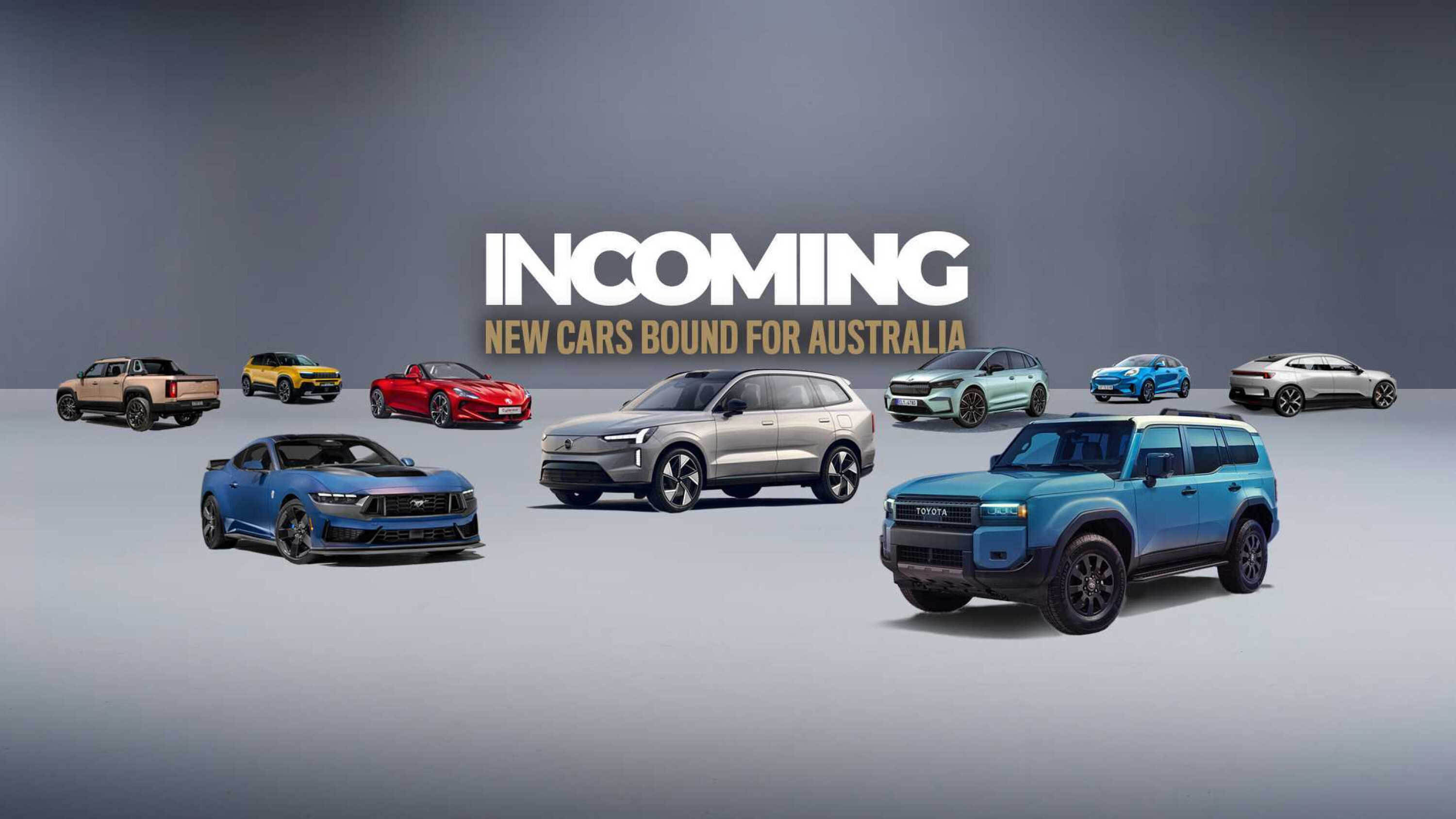 News
News2025 New Car Calendar: All the new cars coming to Australia
Take a look at our list of what is expected to launch in Australia in 2025 – plus those we might not see locally just yet

